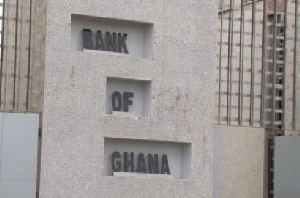 The rule requires MFIs to have a public governance policy
The rule requires MFIs to have a public governance policy
Microfinance institutions (MFIs) have up to the end of April, 2018 to comply with new guidelines set by the central bank to streamline their operations, a report by the Finance Committee of Parliament has revealed.
The rule requires MFIs, among others, to have a public governance policy that establishes a number of committees including a credit management committee and submit reports of these meetings to Bank of Ghana (BoG).
At a Committee meeting prior to the adjournment of seventh Parliament, the technical team from Bank of Ghana told Parliament’s Finance Committee that, following recent happenings in the micro finance sector, the central bank has reviewed the operations of microfinance institutions in order to tighten supervision and re-position the companies.
These revelations were contained in the Finance Committee Report on referral by the House to inquire into measures put in place by Bank of Ghana to improve the activities of microfinance companies and check the operations of sham companies in the country.
Per the new guidelines, MFIs are now encouraged to focus on providing financial services to people who are in the lower income bracket and small-scale entrepreneurs so as to encourage such persons to save and get small loans when required.
Persons with much larger funds or financial requirements should rather resort to the traditional banks.
The BoG indicated that the measures were critical to prevent what happened in the recent past and protect the micro finance operations; “The bank is happy with compliance to the rules by the micro finance companies.”
Responding to whether the MFIs were engaged during the consideration of the new rules, the technical team affirmed that microfinance institutions were involved in the drafting of the rules.
Furthermore, as far sanctions were concern, the Bank conceded that the previous regime was not punitive enough, the Bank has now introduced stiffer sanctions for the MFCs under the Business Rules.
The rules have adequate and deterrent sanctions that the Bank is applying, since the introduction of this measure, the bank is recording higher compliance.
Revision of capital requirements for MFCs
As part of efforts to refocus MFCs, the Bank has revised the capital requirements of MFCs. The MFCs have been grouped into four and the capital requirements for each group includes; Tier 1-Savings and Loans Companies and Rural and Community Banks with a capital requirement of GH?15,000 and GH?1,000,000 respectively.
Tier 2- Deposit taking micro finance companies with a capital requirement of GH?2,000,000.
Tier 3- non-deposit taking money lending companies and Financial NGOs with capital requirements of GH?2,000,000 and GH?300,000 respectively.
Tier 4- individual money lenders and susu collectors that are supervised by their umbrella associations under the supervision of Bank of Ghana without minimum capital requirements.